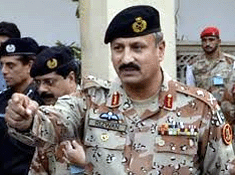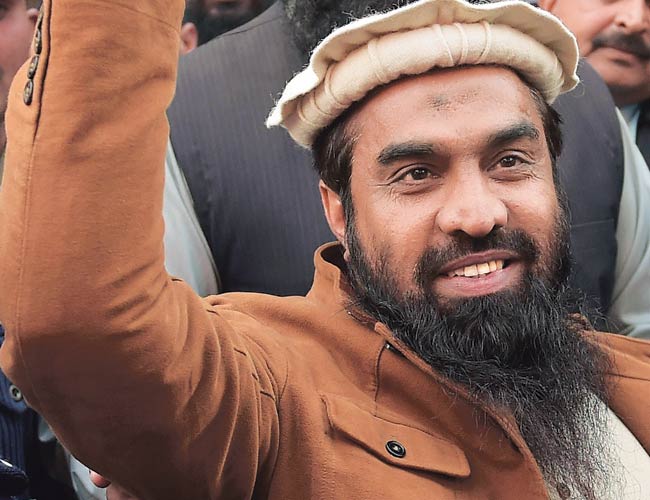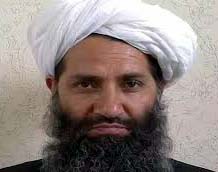New DG must depoliticize ISI, restore internal security

ISLAMABAD: Two key challenges facing the newly appointed director general of the Inter Services intelligence Lt Gen Rizwan Akhtar will be to depoliticize a highly politicsed spy agency and restore internal security by nipping the evil of al-Qaeda linked terrorism in the bud.
The taking over of the ISI headquarters at Aabpara by someone having vast experience in counter terrorism courtesy his previous postings as the General Officer Commanding of South Waziristan and the Director General Sindh Rangers, has also come as a relief to a beleaguered government which has been complaining that certain elements in the ISI had been conspiring against it by using people like Imran Khan and Dr Tahirul Qadri. Rizwan Akhtar has assumed the command at a crucial juncture when Pakistan Army is carrying out a massive operation in North Waziristan and the Tehrik-e-Taliban Pakistan is splitting into various groups, some of which have already pledged their allegiance to Abu Bakar Al Baghdadi-led Islamic State (IS). At the same time, the country continues to face political instability because of a dharna in the heart of Islamabad which is about to complete its third month.
The bad news for the al-Qaeda and Taliban linked militants is that the new ISI chief is determined to help accelerate the military leadership’s ongoing fight against terrorism by devising an anti-militancy strategy that leads to the restoration of internal security. Being a battle-tested field commander, Rizwan has successfully countered terrorism not only in the port city of Karachi but also in the largely lawless South Waziristan region. Having taken part in Army’s Operation Rah-e-Nijat of 2009-2010 in South Waziristan, Operation Zalzala in South Waziristan in 2008 and the Battle of Wana in 2004, Rizwan is convinced that the survival of Pakistan’s security paradigm depends on eliminating the menace of militancy. Even the diplomatic circles in Islamabad are optimistic about his appointment, as they consider him as a “non-ISI” professional soldier who would focus on the actual task of the Agency which has long been blamed for backing certain jehadi groups active in Afghanistan and India.
The good news for the civilian government in Islamabad is that unlike his predecessors, Lt Gen Ahmad Shuja Pasha and Lt Gen Zaheerul Islam, who had been often accused of involvement in politics, Rizwan Akhtar believes in civilian-dominated political process and has a clearly declared preference to strengthen democracy and establish the rule of law as a constitutional requirement. His pro-democracy views can be gauged from a strategic research paper he wrote as a brigadier in March 2008 while he was at US Army War College in Pennsylvania. Titled “US-Pakistan trust deficit and war on terror”, the research paper stated: “The role of military should be limited to ensuring the Nation’s security from external threats and in waging war against terrorists and it should only be utilized for internal security as a last resort”.
Another plus point of the new ISI chief, who comes from a Dogar family of the Handaal village near Kot Radha Kishen in Kasur, seems to be his balanced approach towards the United States and India which may offer hope to the Sharif government in its efforts to improve ties with Washington and New Delhi. A graduate of the National Defence University Islamabad, Command and Staff College Quetta and International Institute of Humanitarian Law (Italy), he had also served as the commanding officer of the peace keeping force in Somalia. He brings the right mix of field experience to a spy agency which has been central to security issues. His close circles say Rizwan views the fight against domestic terrorism as more imperative to Pakistan’s survival than its traditional efforts to dominate Afghanistan and protect against the India, threat. In his strategic research paper, Rizwan had stressed the need to curb anti-Americanism in Pakistan for bridging the trust gap between the two.
He considers militancy a greater threat to national security than the arch-rival India and has assumed the ISI’s command just when the US is set to begin its drawdown at the end of this year. Therefore, highlighting the importance of keeping good ties with New Delhi, he had stressed in his paper: “Pakistan must aggressively pursue rapprochement with India”. Therefore, it appears that unlike his predecessor, Zaheerul Islam, the views of the new ISI chief are closer to those of Nawaz Sharif who is also resolute to improve ties with the nuclear-armed India. In a sharp contrast, another DG ISI, Lt Gen Ahmad Shuja Pasha, who is the mentor of Rizwan Akhtar’s predecessor, Lt Gen Zaheerul Islam, had made headlines when he turned down Zardari-led PPP government’s directives to visit India and share intelligence information in the aftermath of the November 2008 Mumbai terrorist attacks.
Yet another important task before Rizwan Akhtar is cleansing not only his own Agency but also the rank and files of the armed forces of any remaining jehadi elements who have been repeatedly found involved in targeting Pakistan’s vital security installations. Under its previous three chiefs (Generals Kayani, Pasha and Islam), the ISI had earned the reputation of being a ‘state-within-a-state’ – an organization which was answerable to no one but to its own command. All attempts by the civilian governments in the past to bring the ISI under civilian control were foiled, thus creating crises at times in civil-military relations. In fact, the annual budget of the ISI is more than that of the Pakistan Navy’s, and its manpower, estimated to be between 80,000 and 100,000, makes it larger than Pakistan Air Force and Navy combined.
As a result, some of the retired military officials even believe that the ISI was actually slipping from the control of the Army itself. From the May 2011 assassination of Saleem Shahzad to the April 2014 bloody attack on Hamid Mir, there has been a plethora of allegations against ISI which it has strongly refuted. But the fact remains that once considered a holy cow and beyond media criticism, the Agency has been discussed in public and criticized in recent months by civilians. Hence, yet another key challenge for the new boss is to take prompt steps to repair and recreate a new image for ISI by turning it into a modern, non-political and purely professional and law abiding spy agency which is wholly focused on its prime job of providing vital national security and intelligence assessment to the elected government with a view to counter the external threats.
At the same time, as the ISI has yet to clear itself of allegations of supporting Imran Khan and Tahirul Qadri whose dharnas had brought the government to a standstill for weeks, the real test of the ISI chief would be how far he is able to keep his Agency out of politics. The ISI’s overpowering involvement in national politics has not only weakened it but also affected its performance to the detriment of national security. Although many in the establishment circles feel that transforming a sprawling organization like the ISI and depoliticising it in a short span of two years would be an uphill task for Rizwan, there are those who believe that he can do it by creating an impression that unlike his predecessors, he has no political agenda and was willing to work under the command of the elected government, in accordance with the Constitution.




